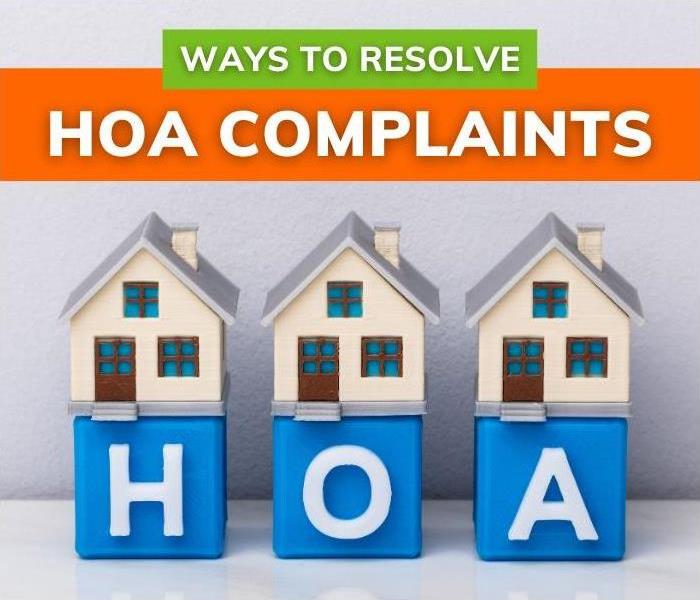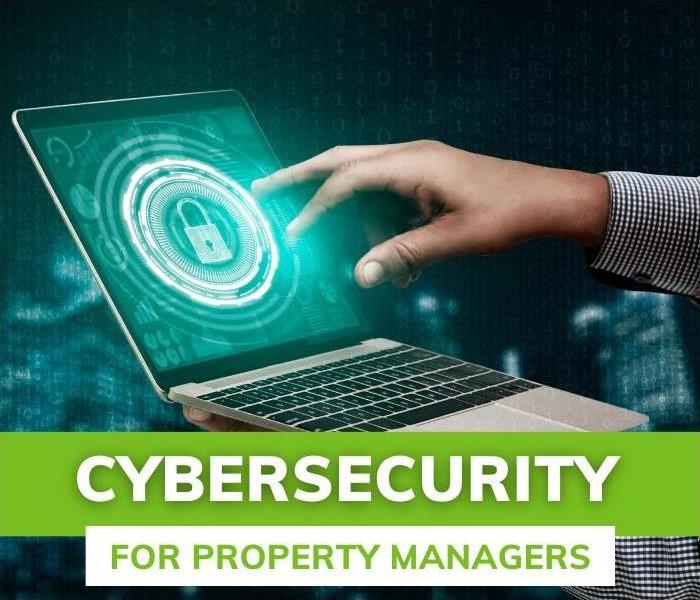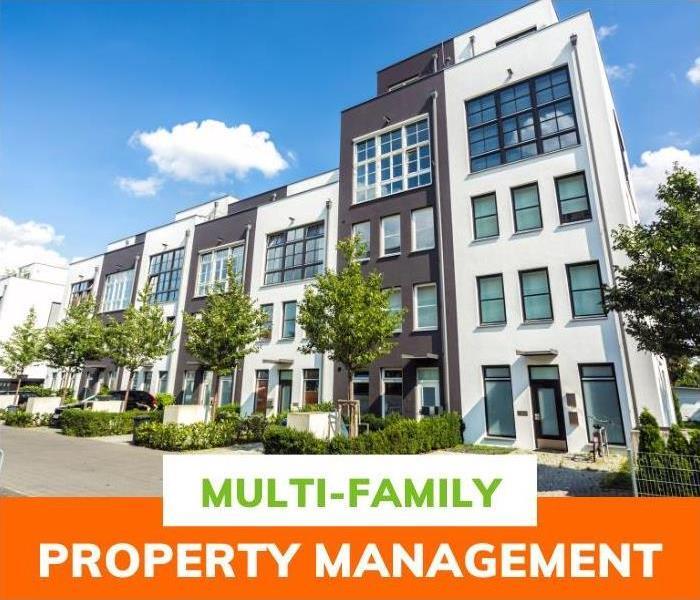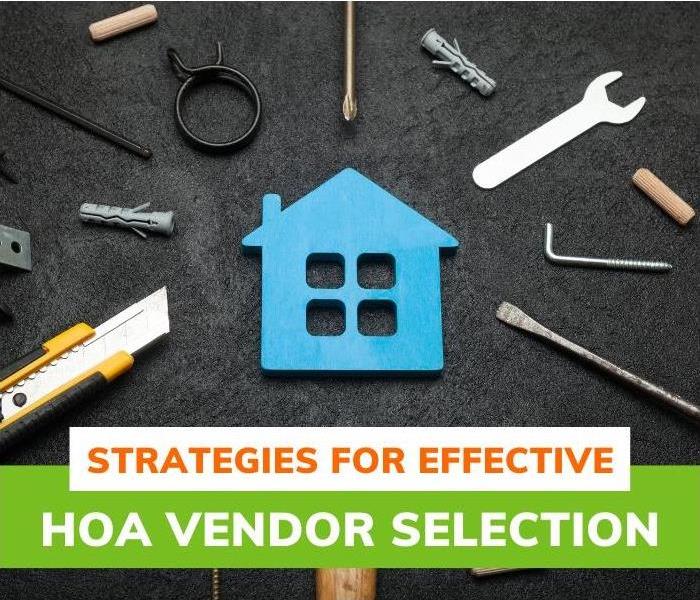Archived General Blog Posts
Effective Ways to Resolve HOA Complaints
2/19/2024 (Permalink)
 Transform your approach to handling HOA disputes with our detailed guide.
Transform your approach to handling HOA disputes with our detailed guide.
Living in a homeowners' association (HOA) managed community offers residents many benefits but is not without challenges. From parking issues to abandoned doggy doo in shared areas and other problems, the variety of complaints covers a lot of ground. When residents express their grievances to the HOA, each complaint warrants communication, careful consideration, and effective strategies to resolve the issues. When the HOA board focuses on how to resolve HOA complaints instead of ignoring or minimizing them, the result is a better community for everyone.
Parking Issues
In some HOA communities, street parking may be in short supply, causing complaints about the limited parking spot availability. Sometimes, people park on the streets in ways that block neighboring driveways. Residents may also park their cars in guest spots instead of their driveway or garage. They might also park an extra, rarely-used vehicle on the street and not move it for extended periods. Finally, unauthorized vehicles that don't seem to belong to residents, but take up valuable street or guest parking, also trigger complaints.
HOAs must provide clear signage to state the community’s rules for parking and enforce those rules or regulations consistently for them to have an effect. Other potential solutions include adding more parking areas designated for guests or issuing parking permits to monitor and effectively manage community parking.
Noise Problems
Neighbors can disrupt the peace by generating excessive noise, from loud music late at night to using noisy equipment in their yard or garage early in the morning. Another common complaint is continual barking from dogs who spend much time in the backyard.
When considering how to resolve HOA complaints about noise, HOAs can establish specific quiet hours for the community and encourage respectful communication between neighbors to resolve issues. Consider implementing a formal process for residents to lodge noise complaints for repeat disturbances.
Problems with Pets
The barking dog is cliché, but many other complaints also come up about neighborhood dogs. Some residents like to walk their dogs off-leash, which can endanger other pets, especially smaller breeds. Some neighbors do not pick up after their pets and leave pet feces on neighbors’ lawns or in common areas for others to deal with.
To resolve these complaints, establish pet regulations and enforce them consistently. Consider installing pet waste-bag stations with trash cans in key areas so residents can use tools to clean up after their pets. In the community newsletter, offer training resources and educational articles to inform pet owners and consider a program to require pet registration.
Neglected Maintenance
Residents may become concerned and lodge complaints if they feel the community upkeep is not up to par, such as overgrown common-area landscaping that blocks walkways, burned-out lights left unrepaired, and buildings with dirty or aged exteriors.
To resolve these issues, put maintenance on a regular schedule and include routine inspections. Promptly handle issues reported by residents and ensure that the HOA can cover maintenance costs by allocating sufficient budget dollars to the community’s upkeep.
Architectural Violations
Neighbors often complain when they see a resident changing their property without proper approval. These alterations can include unauthorized plantings in the front yard or paint colors that are not on the “approved” list. It also includes any structural modifications that have not received approval. For example, a homeowner may add a deck to their house without adhering to the HOA’s defined guidelines.
To resolve these complaints, the HOA can educate residents on the appropriate architectural guidelines for the community. It can also provide homeowners with resources and steps to get approval for home modifications. Conduct regular inspections and institute penalties for any violations to enforce compliance with the guidelines.
Misuse of Community Amenities
This common complaint usually involves reports of community amenities being abused or misused. Examples include residents having parties in common areas without getting proper approval or non-residents using pool and barbecue areas or the community clubhouse without prior permission. Some communities with locked pool areas have issues with residents making key copies for non-residents and their children to use the pool.
To resolve these complaints, the HOA must monitor the amenities regularly to enforce HOA rules. To prevent misuse and keep non-residents from accessing the amenities, consider a reservation system and access controls such as keys or key cards where possible. Use an electronic lock to track which keys are used to access the areas, and assign serial numbers to keys to prevent duplication.
Neighbor Disputes
Conflicts between neighbors can trigger complaints, such as disagreements over shared areas, property boundary disputes, and noise issues. After a disaster situation, such as a fire that involves more than one home, the HOA, and homeowners may have disputes over which insurance company should cover the fire damage and safety concerns that arise during fire restoration work, such as who covers the costs, work delays and questions about the work quality.
When resolving HOA complaints, maintaining open, clear, and transparent communication is the best way to minimize disputes and misunderstandings. The HOA can offer mediation services and other resources for neighbors with difficulties resolving a dispute amicably. Communication is also key for issues such as fire restoration involving multiple homeowners and the HOA.
Taking prompt action and coordinating between homeowners, insurance providers, restoration contractors, and the HOA board can ease many concerns and ensure residents that the damaged properties will be restored to pre-fire conditions as quickly and satisfactorily as possible.
Ensuring Harmony in the Community
In many ways, the HOA acts as a peacekeeper for the community, making it vital to proactively manage and address resident complaints. With clear communication, diligence, and a focus on fair outcomes, the HOA can offer constructive solutions to resident complaints. Enforceable regulations and other strategies can minimize conflicts while upholding the community’s collective well-being. Let SERVPRO of Alhambra be part of the solution by offering high-quality, professional fire restoration and other services to HOAs to restore property values and family routines. Contact us today for more information!
Marketing Ideas for Property Managers
2/16/2024 (Permalink)
 Effective Marketing Techniques for Property Management Success
Effective Marketing Techniques for Property Management Success
When you really think about it, running a successful property management business is all about marketing. A piece of real estate is what it is – a piece of real property. The role of property management companies is to market the features of real estate to generate demand from high-quality tenants and manage the needs of each tenant and property.
Property owners need to show prospective tenants why they should choose a particular property over other options, but more importantly, why they should want to choose a particular property over others. In a sense, this type of marketing is about demand generation just as much as lead generation.
Unfortunately, property management marketing ideas can be hard to come by when you’re busy. Trying to put all of your ideas together in one plan can feel like you’re always playing catch up, especially in high-competition areas. While you’re busy trying to find innovative marketing ideas, you also have to contend with repairs, tenant concerns, rent collection, tax and insurance issues, and more.
We’re Here to Help
To help you save time and expand your marketing efforts, we’ve put together some simple property management marketing ideas you can begin to implement this week. Remember that property marketing in the real estate business is an ever-evolving journey, and no one solution will be a silver bullet; however, these marketing ideas, when implemented with consistency, can go a long way in generating leads for months or even years to come.
Rely on Your Website to Do the Work for You
If you’re serious about property management, you no doubt have a website for your company. While having a website is a great start, you won’t get the most out of it without investing in digital marketing. Search engine optimization (SEO) is a crucial component for digital marketing and website success in the crowded property management field, and local SEO is even more important.
SEO and your website work hand in hand to bring more relevant traffic to your site. Also, SEO strategies can help your property management website rank higher in search results. This means getting your site and properties in front of local people who are already searching for places to lease.
Resources like blog posts add to your website's value and create opportunities to develop backlinks that point to your site. Search engines typically value websites with lots of high-quality backlinks, and your backlink profile can be a ranking factor when your website comes up in local search results for properties for lease.
Consider Online Ads
Another way to attract digital leads is to place web ads through search engines, social media, and industry publications. Online paid ads can be effective property management marketing ideas because they allow you to choose who sees your ads and on what platforms.
Most digital advertising platforms let you select various factors to create a target audience. Some of these factors may include age, location, income level, and hobbies or interests. By selecting the right demographic information for your target audience, you can ensure that the right people see your ads for your location and type of property.
Use Social Media
You can also use social media marketing to engage with prospective and current tenants. Social media platforms like Facebook and Instagram allow you to showcase your properties and present opportunities to show off your company’s personality and style.
Social media profiles are great places to list openings, discuss the benefits of communities around your properties, or update tenants on the latest news. For instance, if you’ve recently had water damage restoration completed at a multi-unit rental property, use social media to share before-and-after pics so that your tenants can see that you’re on top of things. This type of social media content can also help to strengthen the bonds between your company and its tenants.
Solicit Online Reviews
Online reviews are great property management marketing ideas as they allow your tenants to do the marketing for you. Soliciting online reviews from happy tenants and displaying these reviews on the web is a fanatic way to build social proof. People tend to trust the opinions of others when it comes to making purchasing decisions, and a glowing online review can go a long way in building trust with minimal work on your part.
You’re encouraged to be cautious, however, as negative online reviews can be quite detrimental to your plans. Unfortunately, people tend to only leave online reviews when they’ve had negative experiences, and if someone sees many negative experiences associated with your company, they’re likely to steer clear.
If you come across negative reviews, you can combat them by responding promptly but always remaining professional. Demonstrate in your response that your company is committed to making things right if something goes wrong on your end, and encourage private contact between your company and the person who left the review.
Partner With Local Businesses
If you’re looking for offline marketing ideas for your property management business, or if you’re seeking hybrid marketing ideas that combine online and offline strategies, consider partnering with local businesses. For maximum effect, try to find businesses that complement your own.
For instance, consider what your tenants may need when they start planning a move. A moving or supply company would likely fit the bill here, so see what you can do to establish relationships with moving companies or supply companies in the area.
You can then try to find ways to market your business through these partnerships. An example of this may be when you agree to provide branded promotional materials as welcome gifts to a moving supply company. That moving supply company then hands these out to people purchasing packing supplies. The potential exists for someone to see your property management company as they are packing to move and consider contacting your company to see if opportunities are available.
Measure Your Success
No matter what methods you use to market your property management company, measuring success is important. Keeping track of metrics on a regular basis allows you to see what’s working and what may need adjusting. Having access to metrics and knowing what you plan to measure and why can help your company focus its marketing strategy for more effective results.
Protect Your Investment and Keep Tenants Happy With SERVPRO of Alhambra
At SERVPRO, our team is here to make your job easier. We provide property managers with fast response services for fire restoration, mold remediation, and more to ensure your tenants are safe and your properties stay protected. To learn more about SERVPRO restoration, call our team in Alhambra, or use our contact form to reach us online right now.
Cybersecurity Basics for Property Managers
2/9/2024 (Permalink)
 Explore essential cybersecurity strategies for property managers.
Explore essential cybersecurity strategies for property managers.
Property managers wear many hats whether they're responsible for large commercial complexes, multiunit residential properties, mixed-use facilities, or any other property. From managing occupancy rates to handling day-to-day operations or even hiring a water damage restoration company after a major incident, the eyes of tenants, employees, and stakeholders all turn to the property manager. With all of that on their collective plates, it's easy to see how cybersecurity takes a back seat for most property managers.
However, the unintended consequence of that lack of prioritization is a significant increase in the potential liability should a cyber incident occur. Cyber attackers frequently target property management companies, real estate companies, and other related industries Due to the sheer quantity of sensitive information that they possess. For that same reason, data breaches in those industries come rife with negative consequences. You could be facing civil liability, regulatory fines, restitution, and the reputational damage your company would incur from a reported breach.
What Information Should Be Secured?
Without basic training in cybersecurity for property managers, it's likely that they don't even know why they could be targeted for a cyber attack. Property management systems, in particular, provide a mouthwatering target for cybercriminals. Tenants' personal information is sometimes one-sided, with maintenance requests, operational technology, contract details, etc. Cybersecurity risks abound, and high-risk industries like real estate must become proficient in managing those risks.
Property Management Cybersecurity Basics
To that end, we've compiled some of the cybersecurity best practices you can implement to protect your sensitive information from being compromised in a data breach.
Conduct Cyber Risk Assessments
We just mentioned how prevalent cybersecurity risks can be, and you can't possibly mitigate those risks if you don't know where your exposure is. Regular cyber risk assessments should be conducted whether you use a vendor or your in-house personnel. You should evaluate what kind of data you store and utilize, how it's transmitted and backed up, who has access to the sensitive information, and what monitoring solutions are in place. Once you have identified the risks, you can then focus on narrowing the attack surface by enforcing things like multifactor authentication.
Educate All Staff
Just like training in cybersecurity for property managers is essential, all employees need to have a basic understanding of cybersecurity as well. This should include training on possible threat vectors, sensitive information that is at risk, your enterprise's cybersecurity policies, and why those policies are in place. Including the reasoning behind your policies as a part of your training regimen not only makes your staff well-informed but also increases the likelihood that they will then comply with those policies. It's also critical to realize that this training is an ongoing effort. Initial training should be provided during onboarding, but cybersecurity training should be a recurring effort that includes hands-on practical exercises and tests.
Establish Role-based Permissions
Regardless of the size of your company, you should implement system access controls using role-based permissions. This means that instead of applying individual permissions to each user as you add them, you create defined roles within your network that have preset access limits and permitted functions assigned to them. As you create new users, you assign them a role, and all of the permissions associated with that role are automatically applied.
This also reduces the risk of making a mistake when creating a new user and has the added benefit of streamlining the process during onboarding. These roles should be defined using principles of least access, meaning that personnel should only have access to the sensitive data and other information that they truly need to accomplish their assigned tasks. All users should require multifactor authentication to access company networks.
Audit Your System
This applies to both real-time monitoring and true audits. You want to make sure that network activity is within normal parameters. This means tracking and auditing access logs, purchases, and other critical databases to ensure that suspicious activity is not missed. You can leverage software solutions to help you accomplish this task, and some of the best programs out there can learn the patterns of activity across your systems and identify behavior that is outside system norms.
Purge Data and Users
Depending on your enterprise's area, you may encounter applicable data privacy laws that govern what sensitive information or personal data you can request, maintain, and use, as well as rules governing how long you can hold onto that data. Many data privacy laws also require responsible disposal of that sensitive information once it is no longer needed or must otherwise be purged. In addition to cycling out old personal data for tenants and others, you should immediately lock out employees upon their separation from employment. Even if the parting was amicable, the potential for cybersecurity risks with former user accounts still being active is far too high. That doesn't begin to consider the malicious insider threat that could be present.
Encryption
Shockingly, most companies, including real estate property management organizations, do not use encryption regularly. When you have sensitive data, effectively using encryption should be one of the first steps you should take. End-to-end encryption may seem unnecessary, but when you hold payment data for rent payments, personal data of tenants, contractors, employees, and other sensitive information, many regulatory bodies require that you use encryption. Even if they don't, failure to properly protect this information during a data breach can lead to serious consequences. Should you suffer a data breach, it's far better that the attackers find themselves to be the new owners of what appears to be gibberish rather than lists of tenant bank accounts and routing numbers.
Regarding real estate and property management, cybersecurity isn't your only concern. If you suffer a devastating leak, fire, or even storm damage, SERVPRO cleaning can get you back on track and back in your home or property. With residential and commercial experience, SERVPRO has the knowledge and equipment to make your property look like the incident never happened. We can even help manage the insurance process. Contact us today to see exactly how we can help you.
Multi-Unit Property Management Best Practices
2/6/2024 (Permalink)
 Learn essential tips for multi-family property management.
Learn essential tips for multi-family property management.
Managing a multi-unit property is a big job but can also come with big rewards. According to some salary sites on the web, property managers for multi-family unit properties can earn upwards of $85,000 annually, and this is on top of the satisfaction that comes along with knowing you’re helping others to live richer, fuller lives.
Although multi-family property management best practices are very similar to those used in managing single-occupancy dwellings, some special considerations come along with managing multi-unit properties. If you’re considering moving into management for multi-family properties or are considering upgrading your current property management career to include multi-unit properties, below are some best practices to keep in mind:
Establish Clear Communication From the Outset of Tenant Relationships
The most important thing you can do as a multi-family property manager is establish and support clear communication from the outset of any lease agreement. Maintaining clear communication can help your property management company avoid legal issues and can help avoid conflicts surrounding matters like rent payments. When you support strong communication, you have the opportunity to avoid tenant relationship breakdowns and conflict.
It’s also worth noting that you’ll likely end up working with many different people over the course of your career, all of whom will have their own personalities and styles of communication. To make things run smoothly between all of these different personalities, it’s a good idea to have a written policy on tenant communication in place. This document isn’t meant to govern how tenants communicate with staff, but instead, it should lay out acceptable forms of communication for different concerns.
For example, matters regarding rent or repair disputes should be submitted in writing to establish a paper trail. Conversely, you may decide it’s best to discuss matters involving neighbor disputes in person with a witness present. No matter how you decide to lay out your communication policy, document it and present your requirements to tenants before they sign leases.
Take Care of Maintenance and Repair Requests Quickly
Addressing maintenance and repairs promptly according to the terms of a lease agreement is vital for maintaining trust with your tenants. This is especially true in cases where property damage may affect tenants' quality of life, such as after a fire. You’ll want to seek out fire damage restoration services quickly in a case like this since damage after a fire may pose a health hazard to tenants. Also, by taking care of property maintenance issues quickly, you build trust with tenants and reduce disruptions to your daily workflow.
Maintenance and safety issues may also be matters of the law. Most states have specific laws regarding tenant rights and landlord obligations. If you or your property management company do not uphold a tenant’s rights or fulfill your obligations, the issue may end up in court. Losing a legal battle can result in fines, fees, and damage to your professional reputation. When you stay on top of maintenance and repair requests, you avoid these issues and may even boost your reputation.
Have a Screening Process in Place for Tenants
A comprehensive tenant screening process is vital among other multi-family property management best practices. When you screen tenants for suitability, you reduce the chances of dealing with headaches and conflicts over issues like rent collection, and you’re less likely to experience tenant retention challenges.
Tenant screening is also good for tenants so they don’t end up renting units for which they are not financially suited. Of course, you must follow state and federal housing guidelines when screening tenants, but having measures in place to ensure a thriving community will benefit you and your tenants.
When designing a screening process, set reasonable requirements that factor in the possibility of past mistakes. No one is perfect, and people change. You need to protect the integrity of your property and look out for the safety and well-being of all tenants. Still, you don’t want your screening process to become so stringent that it alienates otherwise viable renters.
Use Tech Tools for Efficiency and Safety
The use of technology like property management software is also among the top multi-family property management best practices for real estate professionals. Successful property management is all about efficiency when dealing with multi-family dwellings. As a property owner or manager, you will likely be dealing with numerous requests from multiple tenants daily, so anything you can do to maximize productivity during your workday is good. The software allows you to keep track of all of your rental properties from one place, and many programs provide access to budgeting tools to monitor cash flow.
Security technology is also a good investment for multi-unit properties. These types of properties are often large and sprawling, meaning there’s lots of ground to cover. Installing security cameras and quality lighting in strategic areas around your entire property can serve as a deterrent to criminals, and it can also be a benefit if a matter needs to be investigated in the future.
Consider installing door access technology that lets tenants come and go by swiping an electronic keycard. This can prevent unauthorized individuals from gaining access to your properties. When integrated with property management software and Internet of Things (IoT) technologies, these elements add an additional layer of security to protect tenants and your properties.
Contact the Experts at SERVPRO Alhambra to Learn More
SERVPRO Arcadia is your partner for successful property management. SERVPRO restoration services are the perfect complement to multi-family property management best practices, and we’re here for you for fire damage repair, mold remediation, storm damage cleanup, and more.
Strategies for Effective HOA Vendor Selection
1/24/2024 (Permalink)
 Effective HOA vendor selection made easy! Explore our expert tips on due diligence, cost-effectiveness, and maintaining strong vendor relationships.
Effective HOA vendor selection made easy! Explore our expert tips on due diligence, cost-effectiveness, and maintaining strong vendor relationships.
Selecting vendors for a Homeowners Association (HOA) is a multifaceted task combining analytical decision-making and nuanced human judgment. This intricate process entails weighing various dynamic factors to ensure optimal vendor choice.
Leveraging HOA Documents for Guidance
The vendor selection process begins by consulting the HOA’s governing documents. These documents are critical as they outline the standards and regulatory compliance requirements that potential vendors must meet. Thoroughly reviewing these documents is vital to ensure all criteria are considered, and no essential aspect is overlooked.
Systematic Vendor Screening Approach
A structured screening process is essential for effective vendor evaluation. This includes developing a vendor evaluation matrix to assess licenses, certifications, qualifications, and insurance coverage. The matrix is a tool to determine if vendors align with the HOA's standards and local regulations, aiming to minimize liability risks by selecting vendors who can deliver competent and compliant services.
Advantages of Soliciting Multiple Bids
Obtaining bids from several vendors is recommended rather than choosing the first option. This tactic provides insights into the market’s competitive pricing and service quality. Issuing a Request for Proposal (RFP) can help get detailed proposals, ensuring vendors understand the work scope, expectations, and other critical details.
Vendor Proposal Assessment and Meetings
Post-proposal submission, scheduling meetings with each vendor to discuss their proposals and address any queries is important. Decisions should not be based solely on price; the emphasis should be on the quality of service and the vendor’s ability to meet the HOA's specific needs.
In-Depth Reference Checks
Reference checking is a crucial phase. It involves reviewing online feedback and conversing with previous clients to assess the vendor's reliability, work quality, communication skills, and approach to resolving complaints. This comprehensive evaluation helps construct a detailed picture of each vendor's performance and dependability.
Clear Contractual Agreements
Having clear contract terms is crucial to prevent disputes. Contracts should clearly outline the work scope, timelines, payment terms, and consequences of contract breaches. Regular reviews of existing vendor contracts are also significant to ensure they remain relevant and compliant with regulatory changes.
Choosing Specialized Vendors
Certain tasks, such as stormwater management, require specialized expertise. Selecting vendors with the necessary knowledge ensures complex systems are maintained properly and compliant with regulatory standards.
Building Partnerships with Vendors
Choosing the right vendors is akin to forming partnerships with entities that share the HOA's commitment to maintaining high standards. Specialized service providers, like a mold damage company, are vital in sustaining the community's quality and safety.
Detailed Process for Vendor Selection
- Initial Review of HOA Documents: Examine the HOA’s governing documents for guidance on standards and compliance requirements.
- Developing a Vendor Evaluation Matrix: Create a matrix to assess critical aspects such as licenses, qualifications, and insurance coverage.
- Soliciting Multiple Bids: Obtain several bids for a comprehensive market view. Use RFPs to get detailed and comparable proposals.
- Meeting and Evaluating Vendors: Schedule discussions with vendors to review proposals and clarify doubts. Focus on both price and quality.
- Conducting Thorough Reference Checks: Investigate past performance by examining online reviews and speaking with former clients.
- Drafting Clear Contracts: Ensure contracts are explicit regarding scope, timelines, and payment processes to avoid misunderstandings.
- Periodic Review of Contracts: Regularly update contracts with existing vendors to reflect any changes in regulations or requirements.
- Opting for Specialized Vendors: Choose vendors with specific expertise to ensure compliance and effective management for complex tasks.
- Partnership Approach with Vendors: Aim for a collaborative relationship with vendors who align with the HOA’s standards and values.
Final Thoughts: Ensuring Optimal HOA Vendor Selection
The selection of HOA vendors is a critical task that requires a blend of analytical and subjective decision-making. By following a structured approach that includes thorough document review, comprehensive vendor screening, soliciting multiple bids, and conducting detailed reference checks, HOAs can make informed decisions. Clear contracts and choosing specialized vendors for specific tasks further enhance the effectiveness of this process.
Ultimately, the goal is to form partnerships with vendors like SERVPRO of Alhambra, who provide
residential restoration services, and are committed to maintaining high community standards, thereby ensuring the well-being and satisfaction of the HOA community.
A Summer At SERVPRO
12/11/2023 (Permalink)
We're issuing monthly newsletters for our fans (pun intended!) to stay up to date with our latest events, jobs, and blogs.
Here in this August Newsletter, you will be able to read up on a special employee of the month, find out what they do and how they help make the dream work.
You will also learn about some of the bigger jobs we've completed for the month of August.
Keep reading and our marketing team is featured on what they've been doing to keep the company active!
Click the link below to be redirected to our Newsletter!
See what we've been up to!
Winter Prep: Get Your Place Cozy and Winter-Ready, with a Dash of Fire Safety
12/5/2023 (Permalink)
Hey homeowners and property champs! Winter is knocking, and it's time to give your place some love to make sure it stays warm, snug, and safe. Whether you're chilling at home or running a business, here's a laid-back guide to help you prep your spot for the winter chill.
Seal Those Drafts: Time to play detective! Check for sneaky gaps around windows and doors – the kind that lets cold air crash your cozy party. Grab some weatherstripping or caulking and patch those gaps up. Your heating bill will thank you later!
Warm-Up Your HVAC: Give your heating system some TLC. Change those air filters, make sure there are no leaks, and check if the thermostat is in tip-top shape. A little heating system pampering now can save you from icy surprises later.
Pipes Need Hugs Too: No one likes frozen pipes. Wrap 'em up in insulation, especially in those chilly spots like basements and attics. And don't forget to say goodbye to outdoor hoses – they need a winter break too.
Gutter Cleanup Party: Grab a ladder and clean out those gutters! Leaves and gunk can turn into icy trouble if you leave them hanging around. Make sure water flows smoothly, so you don't end up with a surprise waterfall on your doorstep.
Roof Check-Up: Give your roof some love – it's the unsung hero that keeps you dry. Check for missing or wonky shingles and patch 'em up. If you're not feeling adventurous, call in the pros for a roof date.
Landscaping TLC: Trim those wild branches and trees that could turn into winter troublemakers. Cover up delicate plants or give them a winter vacay indoors. Your green pals will thank you come spring.
Chimney Check for Fire Safety: If you're lucky enough to have a fireplace, give that chimney some attention. Get it cleaned and inspected by a professional chimney sweep to avoid potential fire hazards. Stock up on quality firewood, and enjoy cozy evenings by the fire without worry.
Call Us for Peace of Mind: Feeling overwhelmed? We've got your back! Call us for any questions or concerns you may have. Our experts will ensure your home or commercial space is winter-ready, so you can relax and enjoy the season worry-free.
Emergency Kit Vibes: Put together a cool emergency kit – flashlights, batteries, blankets, and snacks. Just in case winter throws a curveball, you'll be ready for anything. Share the emergency plan with your crew so everyone's on the same snow-covered page.
Wrap it up, folks! With a bit of prep and our help, you'll be sipping cocoa in your winter wonderland, worry-free and safely warming up by the fire. Cheers to a cozy and stress-free winter! ?????
Earthquake Tips!
7/12/2019 (Permalink)
Living in California, you have to always be prepared for an earthquake since this state has been prone to some serious earthquakes in the past. Although, bigger earthquakes, such as the 6.7 one that hit Northridge area of Los Angeles are often pretty rare, even minor earthquakes can damage your homes and property and even cause injuries as well.
The key to preventing and lowering the risk of injury and surviving an earthquake is to plan, prepare, and practice what you will do when an earthquake happens.
Earthquake Drills
During an earthquake drill, practice:
- Get under a study table or desk and hold on to it
- Make sure you know where the disaster and emergency supplies are
- Practice the DROP, COVER, AND HOLD-ON in each safe place
- Drop under a sturdy table or desk and hold on to one of the legs of the table to desk and protect your eyes by keeping your head down
- Doorways are no stronger than any other part of a structure so do not rely on them for protection!
- Stay clear of windows or glass that could shatter or objects that could fall on you
- Always use the stairs if you are above the first floor of a building in the case of power outages or aftershocks
- Stay indoors until the shaking has stopped before you are sure it is safe to exit the building
- When outside of the building, move away from any structures since falling debris could fall and injure someone that is around surrounding buildings still
- Leave a structure when it is safe if you smell gas
Frequent practice will help reinforce safe behavior in an event of an actual earthquake.
Always keep a look out for a possibility of an aftershock. Aftershocks are smaller earthquakes that follow the main large earthquake. Aftershock earthquakes can continue over a span of hours, days, and even months afterwards. Usually, the larger the earthquake, the more frequent and numerous the aftershocks are. They can cause as much damage as the main earthquake and some rare cases, a larger earthquake can occur.
More tips and how what to do before, during, and after an earthquake, visit this website here:
http://www.redcross.org/get-help/how-to-prepare-for-emergencies/types-of-emergencies/earthquake#Before





 24/7 Emergency Service
24/7 Emergency Service





